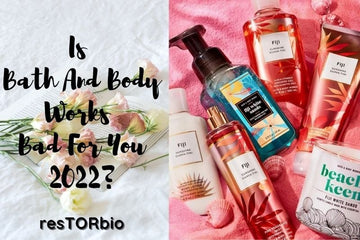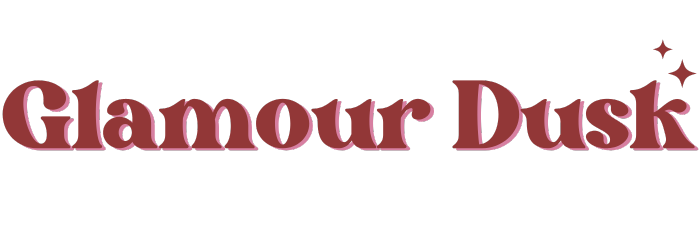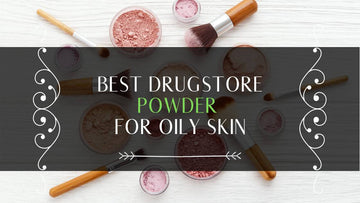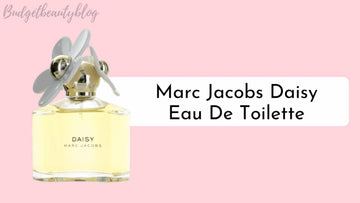
Bath and Body Works is a retailer that specializes in body care products. The company has come under fire in recent years for allegedly using harmful ingredients in its products. Some consumers have claimed that using B&BW products has caused them to develop skin problems.
So Is Bath and Body Works bad for you? Let me find out the answer.
Is Bath and Body Works FDA approved
Bath and Body Works is not FDA approved, as the FDA does not approve cosmetic products or their ingredients before they are sold to consumers. However, cosmetic products sold in the United States must comply with the regulations set forth by the FDA, which includes proper labeling of ingredients and adherence to good manufacturing practices.
Bath and Body Works products are generally considered safe for use, but it's always a good idea to read the ingredients list and do a patch test before using a new product.
What Bath And Body Works Products are We Talking About?
We're looking at all of BBW products when researching ingredients. This includes:
- Scented Candles
- Wallflowers and room fresheners
- Fragrances, sprays, and Aromatherapy Products
- Body Lotions, Moisturizers, and Body Cream
- Soaps and Body Washes as well as Bath Bombs
- Hand soaps & sanitizers
Despite having different functions, both home and beauty products have many of the same ingredients.
Is Bath And Body Works Bad For You?

Anyway check the list of products here
First red flag: A Huge Lack of Ingredient Transparency
One of the biggest problems with Bath and Body Works products is that they don't list their ingredients on their website.
Transparency is an important aspect of a safe brand. Consumers deserve to know the contents of the products they purchase. If a company doesn't want to share that information (or actively tries to hide it), that is a sign that it might not be a safe brand. This is a sign that the company might not be safe and clean.
However, skincare products are legally required to be listed on labels.
We've analyzed all of the products from BBW and found the most important and concerning ingredients.
Bath and Body Works Ingredients: Top Toxins of Concern
Search "Bath and Body Works", on the Environmental Working Group's Skin Deep database, and you will find that every product listed has a score of 4 or higher. 4. is considered moderate in terms of toxic ingredients. It is not the most dangerous product or ingredient, but it is not safe. Many products from the B&BW store are in the 6-8 range. 1 is the best, 10 is the worst.
EWG's database doesn't tell you everything. But it gives you a general view of whether a brand or product can still be considered safe.
Bath and Body Works Fragrances
BBW is well-known for its fragrances. There are hundreds of scents they have released, including the classic Warm Vanilla Sugar, Iced Raspberry Bellini, Twinkling Midnight Sky, among many others.
Nearly all BBW products have the ingredient "fragrance", which is listed on the labels. (If you find one that does not contain it, please let us know.
However, this ingredient can be a problem. The "fragrance loophole" allows companies to legally hide nearly 4,000 chemicals in their products by using the generic term "fragrance," parfum", or "eau de toilette." This happens because fragrance formulations are considered "trade secrets."
Many of these 3,500+ chemicals have been shown to be toxic to animal and human health. These chemicals include phthalates and volatile organic compounds (VOCs), carcinogens, allergens, irritants, and many more.
Yes, each product of BBW could contain multiple toxins that fall into one or more of these categories. ).
If you want to dive a bit deeper into why synthetic fragrances are bad, click here.
Parabens
Many BBW products contain ingredients like butylparaben and methylparaben as preservatives. Parabens have been known to disrupt the body's natural hormone function. Parabens can cause or contribute to many negative health outcomes such as cancer, infertility, and other reproductive issues. Skin irritation can also be caused by parabens.
Artificial Colors & Dyes
Many artificial colors and dyes are listed on labels, such as "FD&C Red No. 40" or "FD&C Yellow 5". 40" or "FD&C Yellow 5") in Bath and Body Works products as well. Most commonly used colorants are made of petroleum or coal tar, and can be contaminated by carcinogens.
Although there is still much to be done in independent research about the health effects of these dyes, many studies have shown that they can cause hyperactivity in children, hypersensitivity reactions, tumor growth and cancer.
Sulfates
Sulfates like Sodium Lauryl Sulfate (SLS) and Sodium Laureth Sulfate (SLES) are common ingredients in shampoos and soaps. SLS can be skin irritation and can lead to eczema, dry skin, rashes, or other skin conditions. Although SLES is gentler on the skin than other products, the manufacturing process can cause it to be contaminated by carcinogens.
Methylisothiazolinone
This ingredient (along with other isothiazolinone preservatives) is commonly used in cleaning products like hand soap, shampoo, and body wash. Methylisothiazolinone is not only a skin irritant and sensitizer, but it's also toxic to aquatic life and is a suspected endocrine disruptor.
PEGs
The compounds of polyethylene glycol (a.k.a. PEGs) are used in all types of skincare and makeup, as well as cleaning and beauty products. They can be used as thickeners and softeners, perfume "dispersants", penetration enhancers, and many other functions.
PEGs are primarily concerned because they could be contaminated by carcinogens like ethylene oxide or 1,4-dioxane.
Other than that, PEGs can also increase the penetration of other ingredients. This means they can make bad ingredients (such as phthalates) even worse. even worse.
You can find out more about PEGs by reading our post on whether or not Downy Unstopables is toxic.
Paraffin Wax
Paraffin wax is derived from petroleum and makes up the majority of Bath and Body Works candles. Paraffin wax releases toxic substances into the air when it is burned. It's basically like burning fossil fuels inside your home.
Read more: Are Bath And Body Works Candles Toxic 2022?
Is Bath and Body Works sustainable or Eco-friendly?

Bath and Body Works is not sustainable and eco-friendly from an ingredient perspective. Many of the potentially harmful ingredients and materials are toxic to the environment and can't be recycled easily (so many plastics!).
B&BW did however implement some sustainability initiatives such as recycling in their stores and eliminating PVC bottles. It's still not enough to call the company sustainable.
What about their [Viral] Return/Recycling Programme?
Some TikTok posts about how to return empty Bath and Body Works candle jars or any other product went viral in fall 2021. The company will either refund you or provide you with new products.
Some people mistakenly believe that this content is part of the BBW recycling program. But it's not. The brand does not have a program to recycle customers' used candle jars and other products.
The reason the company's store employees are taking back customers' products is actually a part of their general return policy, which says that "if at any time you're not completely satisfied with the quality of our products, you may return them."
This policy is technically not supposed to be for almost completely used-up products, even though some people on social media were using it that way.
Is Bath and Body Works Cruelty-free?

Does Bath and Body Works test on animals? It's difficult to say. Here's what their website says:
"Bath & Body Works does not test any of our products, formulations, or ingredients on animals. Period. All of our personal care products are produced in North America, Europe, and South Korea."
This statement is however suspect due to the fact that Bath and Body Works sells its products in China. Chinese law requires that products made outside China be tested on animals before being sold to Chinese citizens. The company has also stated that all products sold in China would be made there, eliminating the need to test on animals.
What happened to the products that were sold in China? And why did BBW take this information out of their statement on animal testing?
Unfortunately, it's not enough to gain our trust and we cannot confidently say that Bath and Body Works is a cruelty-free brand.
Read full our post: Is Bath And Body Works Cruelty Free?
Is Bath and Body Works Vegan?
BBW carries some vegan products but they are not vegan-friendly brands due to the lackluster information on animal testing.
It is also important to note that BBW does not have any statements on its website about vegan and/or animal-derived products and ingredients.
Where Are Bath and Body Works Products Made?
Their website states that most B&BW products are made in the USA, Europe and South Korea. However, less than 1% of their products were manufactured in China.
They do however add that specific manufacturing information is proprietary as we own the rights to the product and formula. This should be a red flag. Many companies will use the fact they don't want any other brands to steal their information to justify keeping it secret from customers.
The authors add that they work with vendors from all over the world to source and produce their products. This means that even though the products are formulated and packaged in the USA the ingredients can come from anywhere.
Conclusion
There is no one definitive answer to the question of whether Bath and Body Works is bad for you. Some people claim that the products from the store are full of harsh chemicals that can be harmful to your skin, while others say that the ingredients in the products are all-natural and safe. Ultimately, it is up to each individual to decide whether they feel comfortable using BBW products.




